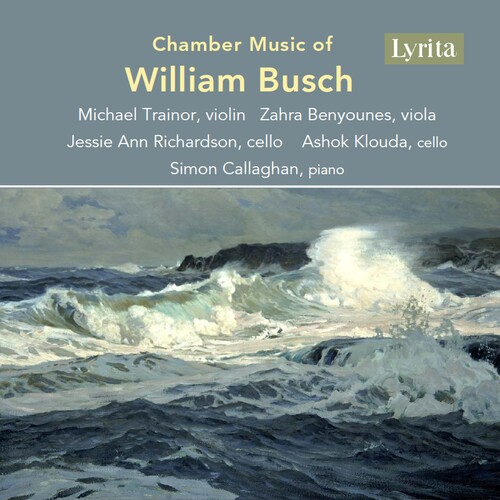Show results for
Deals
- 4K Ultra HD Sale
- Action Sale
- Alternative Rock Sale
- Anime sale
- Award Winners Sale
- Bear Family Sale
- Blu ray Sale
- Blues on Sale
- British Sale
- Classical Music Sale
- Comedy Music Sale
- Comedy Sale
- Country Sale
- Criterion Sale
- Electronic Music sale
- Fantasy Film and TV
- Folk Music Sale
- Hard Rock and Metal Sale
- Horror Sci fi Sale
- Jazz Sale
- Kids and Family Music sale
- Kids and Family Sale
- Metal Sale
- Music Video Sale
- Musicals on Sale
- Mystery Sale
- Naxos Label Sale
- Page to Screen Sale
- Paramount Sale
- Pop and Power Pop
- Rap and Hip Hop Sale
- Reggae Sale
- Rock and Pop Sale
- Rock Legends
- Soul Music Sale
- TV Sale
- TV Sale
- Vinyl on Sale
- War Films and Westerns on Sale

Chamber Music of William Busch
- Format: CD
- Release Date: 1/3/2025

Chamber Music of William Busch
- Format: CD
- Release Date: 1/3/2025
- Composers: William Busch
- Label: Lyrita
- UPC: 5020926043924
- Item #: 2681564X
- Genre: Classical Artists
- Release Date: 1/3/2025

Product Notes
Three pieces for violin and piano were written as individual works and, as such, they can be presented separately or, if given collectively as a suite, played in any order. Busch wrote his Passacaglia for violin and viola in 1939, the score takes the form of a decisive, four-bar theme followed by thirty variants upon it. These mini-variations range widely in character, from trenchant and forceful to airy and smooth. A Memory for cello and piano was written for Elizabeth Poston. Busch subtly conveys the idea of a reminiscence suggested by the title with simple, lightly sketched ideas presented with an air of hazy nostalgia. Eventually, the feeling of distance and reserve created in the opening portion of the work is replaced by a more troubled mood. The music ends in sorrow with a heartfelt, steeply descending sequence for unaccompanied cello followed by the merest hint of the opening material. The Quartet for piano and strings is the most substantial of William Busch's chamber pieces. Although the composer's lyrical gifts are much in evidence, the four movements are also rigorously concise. Considerable dramatic rewards are gained from the creative tension between the music's unforced expressivity and the formal rigour with which Busch's powerful themes are worked out. The Suite for Cello and Piano is among Busch's most searching and variegated instrumental works. In a postwar assessment of the score, The Times' critic noted that it's four pieces 'reveal a sensitive and interesting mind'. Elegy for cello and piano exploits fully the stringed instrument's lyrical qualities and capacity for rich, autumnal colours. The work begins with an extended soliloquy for unaccompanied cello and the cellist continues to preside over the entire opening section, which features only a couple of brief interjections from the piano. © Paul Conway

